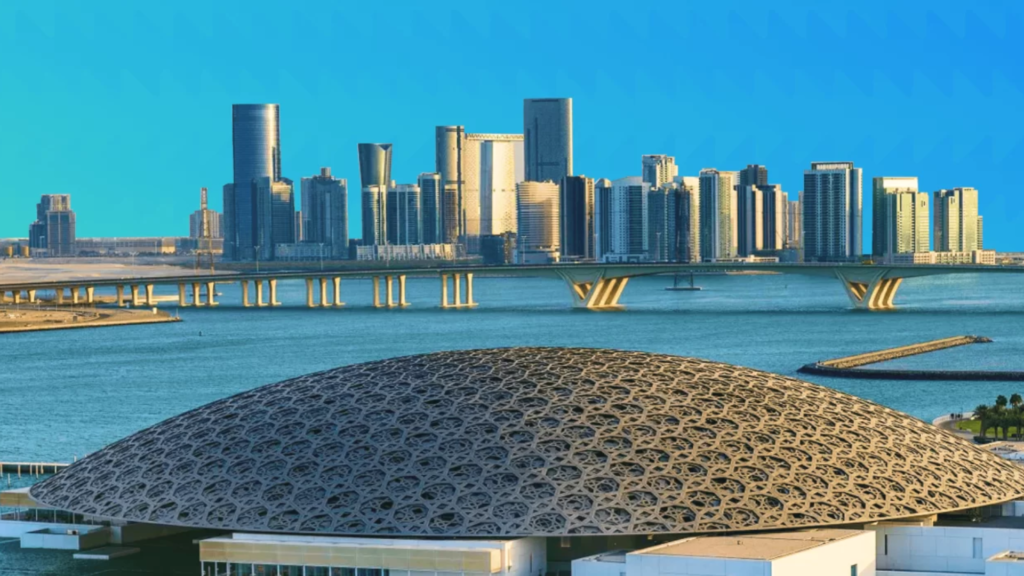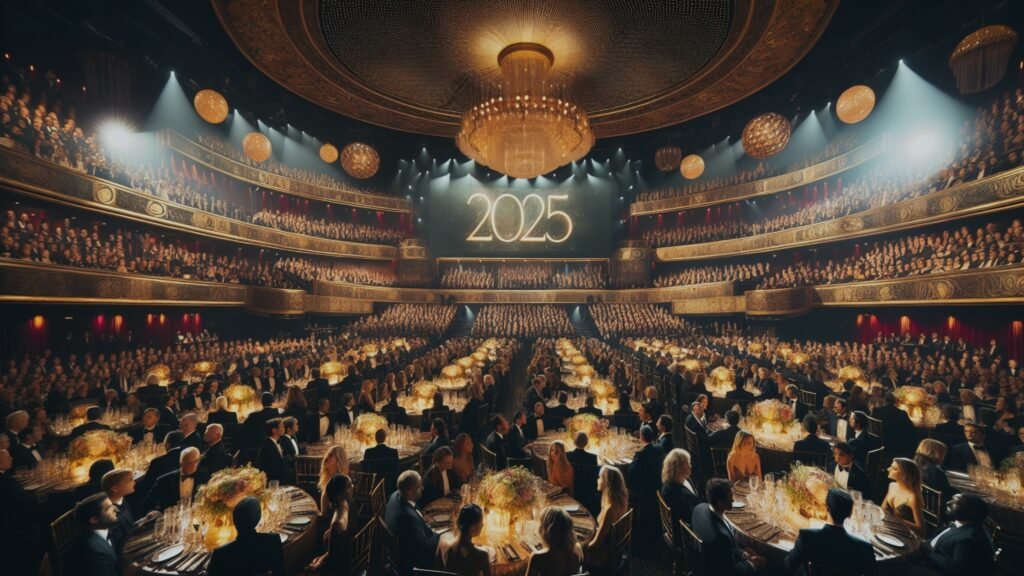Introduction
The commercial real estate (CRE) landscape in Abu Dhabi is undergoing a significant transformation, driven by a confluence of factors including the emirate’s ambitious economic diversification agenda, rapid technological advancements, and the lasting impacts of the global pandemic. As Abu Dhabi solidifies its position as a global hub for finance, technology, and trade, its commercial property market is evolving to meet the demands of a dynamic and increasingly sophisticated business environment.
This blog post will delve into the key post-pandemic trends shaping office spaces, retail, and industrial properties, and identify the emerging investment opportunities that are positioning Abu Dhabi as a compelling destination for both local and international investors. We will explore how the emirate’s strategic vision, coupled with a focus on sustainability and innovation, is creating a resilient and attractive CRE market for the future.
The Evolving Landscape of Office Spaces
The office sector in Abu Dhabi has demonstrated remarkable resilience and growth in the post-pandemic era, characterized by a significant shift towards high-quality, flexible, and technologically advanced workspaces. The demand for Grade A office spaces is surging, with multinational corporations and financial institutions actively seeking modern environments that offer superior infrastructure and amenities. This ‘flight-to-quality’ trend underscores the market’s maturity and its ability to attract top-tier businesses.
Key locations such as Al Maryah Island, home to the Abu Dhabi Global Market (ADGM), continue to be magnets for financial and professional services firms, experiencing exceptionally high demand for premium office space. Other areas like Capital Centre, strategically located near the Abu Dhabi National Exhibition Centre (ADNEC), and emerging hubs like Khalifa City and Masdar City, are also witnessing increased popularity. The latter two are particularly attractive to businesses focused on technology, sustainability, and aviation, requiring well-connected and modern office solutions.
Beyond location, companies are increasingly prioritizing features that enhance employee productivity and well-being. This includes ample natural light, flexible layouts that can adapt to various work styles, and cutting-edge security systems. These elements are making Grade A properties a more attractive and future-proof investment.
The post-pandemic landscape has also accelerated the adoption of hybrid work models, leading to a substantial increase in demand for co-working spaces and serviced offices. This trend provides businesses, from startups to large corporations, with agile solutions that allow for rapid scaling up or down without the long-term commitments of traditional leases. Investors are keenly observing properties that can be converted into or purpose-built for flexible office operations, recognizing this as a significant reshaping force in the commercial property market.
Furthermore, technology and sustainability are pivotal drivers in the evolution of office spaces. Abu Dhabi’s commercial real estate is rapidly adapting to global trends in smart buildings and environmentally conscious developments. Developers are focusing on energy-efficient designs, robust digital infrastructure, and wellness-oriented office environments to meet the expectations of modern businesses. Projects like Masdar City Square and The Link exemplify this commitment, showcasing net-zero energy concepts and LEED-certified office buildings.
Government incentives for Estidama Pearl-rated projects and reduced operating costs for green-certified buildings are encouraging landlords to embrace sustainability, with investors recognizing higher yields in these properties, particularly on Reem and Saadiyat Islands.
According to ValuStrat’s Q2 2025 report, the office market in Abu Dhabi is experiencing strong demand, with asking rents increasing by 28.3 percent annually and 6.1 percent quarterly. The average asking rent reached AED 860 per square meter, driven by high occupancy levels in central business districts. The total office stock stands at approximately 3.9 million square meters, with new additions like Masdar City Square contributing significantly to the supply. This robust performance indicates a healthy and expanding office market, poised for continued growth.
Retail Sector: Adapting to New Consumer Behaviors
The retail sector in Abu Dhabi is demonstrating remarkable resilience and adaptability in the face of evolving consumer behaviors and the lingering effects of the pandemic. While traditional retail continues to thrive, there is a clear trend towards integrating online and offline experiences, as well as a focus on experiential retail to attract and retain customers. The UAE’s e-commerce market is projected to exceed AED 48.5 billion by 2028, further enhancing Abu Dhabi’s retail landscape and pushing for innovation in physical spaces.
Shopping centers remain a significant component of the retail infrastructure, with a total stock of 1.95 million square meters Gross Leasable Area (GLA) as of Q2 2025. Notable expansions and redevelopments, such as the Al Jimi Mall, are set to significantly increase the total built-up area, indicating continued investment in physical retail spaces. Aldar’s retail assets have reported a healthy 12 percent year-on-year growth in revenue, with key establishments like Yas Mall maintaining a high occupancy rate of 98 percent. These figures highlight the strong underlying demand and consumer confidence in Abu Dhabi’s retail market.
The post-pandemic consumer is more discerning, seeking value, convenience, and unique experiences. This has led to a greater emphasis on mixed-use developments, where retail offerings are seamlessly integrated with residential, office, and hospitality components. These integrated environments create vibrant urban destinations where people can live, work, and shop, fostering a sense of community and enhancing the overall appeal of commercial properties.
Furthermore, the retail sector is increasingly leveraging technology to enhance the customer journey. This includes the adoption of digital payment solutions, personalized marketing strategies, and in-store technologies that provide interactive and engaging experiences. Retailers are also adapting their physical footprints to serve as showrooms or click-and-collect points, complementing their online sales channels.
The growth of tourism also plays a vital role in bolstering the retail sector. As Abu Dhabi continues to attract international visitors, the demand for luxury goods, unique local products, and diverse dining experiences remains strong. The ongoing development of tourism infrastructure and attractions further supports the retail market, ensuring a steady influx of consumers.
Industrial Properties: Growth Drivers and Logistics Hubs
The industrial real estate sector in Abu Dhabi is experiencing a robust period of growth, driven by the emirate’s economic diversification efforts, significant investments in infrastructure, and the burgeoning e-commerce and logistics industries. Abu Dhabi’s strategic location and its commitment to developing world-class logistics capabilities are positioning it as a key regional and international trade hub.
According to ValuStrat’s Q2 2025 report, the industrial sector is thriving, with industrial property asking prices experiencing double-digit annual growth, averaging an impressive 15.9 percent. Warehouse prices currently range between AED 1,668 and AED 4,736 per square meter, with variations influenced by facility specifications and location. This strong price appreciation reflects the high demand and limited supply of modern industrial facilities.
Key drivers for this growth include the expansion of non-oil sectors, particularly manufacturing, technology, and healthcare. The establishment of specialized economic zones, such as Khalifa Industrial Zone Abu Dhabi (KEZAD), plays a crucial role in attracting industrial investments. KEZAD offers state-of-the-art infrastructure, competitive operating costs, and a business-friendly environment, making it an attractive destination for companies looking to establish or expand their operations. The recent establishment of a vaccine distribution hub at KEZAD further underscores the sector’s growth potential and its strategic importance.
The rise of e-commerce has significantly boosted the demand for modern warehousing and logistics facilities. Companies require efficient and technologically advanced distribution centers to manage their supply chains and meet the growing consumer demand for fast and reliable delivery. This has led to increased investment in automated warehouses, cold storage facilities, and last-mile delivery hubs. Abu Dhabi’s ongoing infrastructure projects, including the Etihad Rail network, are expected to further enhance connectivity and logistics efficiency, increasing the value of commercial assets in the industrial sector.
Furthermore, the government’s focus on food security and advanced manufacturing initiatives is creating new demand for specialized industrial properties. This includes facilities for food processing, agricultural technology (AgriTech), and high-tech manufacturing.
The industrial sector’s strong performance and strategic importance to Abu Dhabi’s economic vision make it a compelling area for investment. The continuous development of infrastructure, coupled with supportive regulatory frameworks, ensures a sustained growth trajectory for industrial properties in the emirate.
Post-Pandemic Trends Shaping the Market
The COVID-19 pandemic acted as a catalyst, accelerating several pre-existing trends and introducing new dynamics that are fundamentally reshaping Abu Dhabi’s commercial real estate market. These post-pandemic shifts are not merely temporary adjustments but represent a long-term evolution in how businesses operate and how commercial spaces are utilized.
One of the most significant and enduring trends is the widespread adoption of hybrid work models. The necessity of remote work during the pandemic demonstrated the viability of flexible working arrangements, leading many companies to re-evaluate their traditional office setups. This has directly fueled the demand for co-working spaces and serviced offices, which offer businesses the agility to scale their operations up or down without the burden of long-term lease commitments.
Sustainability and smart building technologies have moved from being desirable features to essential components of modern commercial properties. Abu Dhabi’s commitment to environmental stewardship, enshrined in its Green Building Regulations and the Estidama Pearl Rating System, has driven developers and investors to prioritize energy-efficient designs and eco-friendly infrastructure. The integration of IoT sensors, predictive maintenance systems, and advanced security solutions not only reduces operational costs but also enhances tenant appeal, particularly for companies with strong corporate social responsibility (CSR) mandates.
Economic diversification remains a cornerstone of Abu Dhabi’s long-term strategy, as outlined in Abu Dhabi Vision 2030. The pandemic underscored the importance of a resilient and varied economy, prompting increased investment in non-oil sectors such as technology, healthcare, education, and logistics. This strategic shift creates specialized demand for commercial properties, including purpose-built facilities and mixed-use developments tailored to the unique needs of these growing industries.
Finally, strategic location, enhanced connectivity, and integrated urban development are defining the future of commercial properties. Major infrastructure investments, such as the Etihad Rail network, are expected to significantly increase the value of commercial assets by improving accessibility and logistics efficiency. Large-scale urban projects like Zayed City, envisioned as a second downtown, are designed to integrate commercial hubs with government facilities, metro, and rail connectivity, creating business-friendly districts embedded within vibrant lifestyle ecosystems.
Emerging Investment Opportunities
The dynamic shifts in Abu Dhabi’s commercial real estate market, propelled by post-pandemic trends and the emirate’s strategic economic vision, have opened up a plethora of attractive investment opportunities across various sectors. Investors looking for stability, high returns, and future-proof assets will find Abu Dhabi to be a compelling destination.
1. Grade A Office Spaces and Flexible Workspaces
The sustained demand for premium, technologically advanced, and green-certified office spaces presents a prime investment avenue. With high occupancy rates in central business districts and rising rental rates, investing in Grade A offices promises strong returns. Furthermore, the growing popularity of flexible workspaces and co-working hubs, driven by hybrid work models, offers opportunities for developing or converting properties to cater to this agile demand.
2. Logistics and Industrial Facilities
The thriving industrial sector, fueled by economic diversification, e-commerce growth, and strategic infrastructure projects like the Etihad Rail network, is a significant area for investment. Opportunities exist in developing state-of-the-art warehouses, distribution centers, and specialized facilities for sectors such as manufacturing, healthcare, and food security. Abu Dhabi’s strategic location as a regional trade hub further enhances the long-term prospects of this sector.
3. Mixed-Use Developments
The trend towards integrated urban environments, combining retail, residential, office, and hospitality components, offers holistic investment opportunities. Projects on Al Maryah Island and Reem Island exemplify the success of these developments, creating vibrant communities where people can live, work, and socialize seamlessly.
4. Sustainable and Smart Buildings
With Abu Dhabi’s strong commitment to sustainability and green building regulations, investments in LEED or Estidama-certified properties are increasingly attractive. These buildings offer reduced operational costs, enhanced tenant appeal, and are future-proof against tightening environmental regulations. Government incentives further support the development of green-certified projects, leading to higher yields for investors, particularly in areas like Reem and Saadiyat Islands.
5. Niche Sectors Driven by Economic Diversification
Abu Dhabi’s focus on non-oil sectors like technology, healthcare, and education is creating specialized real estate demands. Investing in properties tailored for tech startups (e.g., near Hub71), medical offices, labs, or educational facilities presents unique opportunities.
6. Hospitality Sector
The hospitality sector is experiencing robust growth, with occupancy rates at 83.7% and significant increases in Average Daily Rate (ADR) and Revenue Per Available Room (RevPAR) in Q2 2025. Major tourism initiatives, such as the new Disney theme park resort on Yas Island, are expected to further boost demand, making hotel and serviced apartment developments a promising investment.
Fueled by regulatory reforms and a significant surge in foreign direct investment, Abu Dhabi’s commercial real estate market is ripe with opportunities for strategic investors. The ease of doing business, coupled with a stable economic environment and forward-thinking urban planning, positions Abu Dhabi as a leading destination for commercial property investment in the coming years.
Conclusion
The commercial real estate market in Abu Dhabi stands at the cusp of a new era, characterized by dynamic growth, strategic diversification, and a profound commitment to innovation and sustainability. The post-pandemic landscape has not only accelerated existing trends but has also introduced new paradigms that are fundamentally reshaping how commercial spaces are conceived, developed, and utilized.
From the surging demand for flexible, technologically advanced office spaces to the resilient retail sector adapting to omnichannel consumer behaviors, and the thriving industrial segment driven by logistics and e-commerce, Abu Dhabi is demonstrating remarkable adaptability and foresight.
The emirate’s ambitious economic vision, coupled with significant government investments in infrastructure and supportive regulatory frameworks, is creating a robust and attractive environment for investors. The emphasis on mixed-use developments, green-certified buildings, and specialized properties catering to burgeoning non-oil sectors like technology, healthcare, and education, underscores a holistic approach to urban development that prioritizes long-term value and societal well-being.



